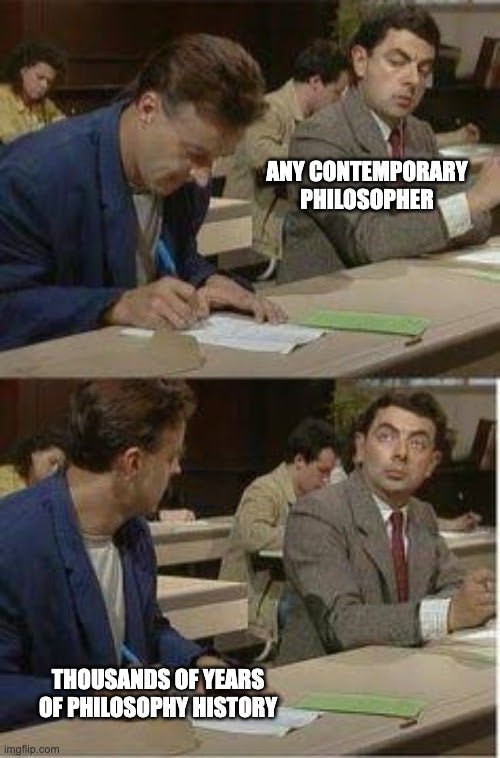Philosophical Dictionary
-

The Birth of Nietzsche from the Spirit of Philosophy
By Caroline Black
In today's article, we discuss Friedrich Nietzsche's ideas on aesthetics in The Birth of Tragedy, making a case for the philosopher's continued relevance. -

Dreams, Mirrors, and Invisible Coffee: Discover the Truth
By Caroline Black
The final par of the "Philosophy Carol" series. Meeting the Ghost of Philosophy in an eternal cafe brings you to an epiphany. -

How Language Shapes Thought: Exploring Wittgenstein's Philosophy and the Sapir-Whorf Hypothesis
By Markus Uehleke
Discover how your language might be shaping—or limiting—your thoughts. Explore Wittgenstein's revolutionary "language games" concept and the truth behind the Sapir-Whorf hypothesis. Learn why linguists believe the words we use influence but don't determine our perception of reality. -

Sisyphus: The Absurd Hero or Asymptomatic Case?
By Markus Uehleke
We ask the tough questions here: what if Sisyphus is just asymptomatic and his happiness is not at all transferable to us "normal" people? Is Camus' assertion more than the "it is what it is" for educated people, even if it is repeated like a mantra in some places?
-

Kant's Thing-in-Itself: The Reality Behind the Curtain
By Markus Uehleke
Kant proposed that our perception of the world is shaped by our senses and mental faculties, filtering reality into a comprehensible form. The "Thing-in-Itself," however, represents the elusive reality that lies beyond our perceptual limitations. By grasping this concept, you can challenge the boundaries of your own understanding and explore what lies beneath the surface of appearances. -

Beyond Good and Evil: Unleashing the Power of Nietzsche's Overman
By Markus Uehleke
Nietzsche viewed the overman as a higher state of being, where individuals embrace their instincts, desires, and passions to unleash their creativity and power. We try to highlight what Nietzsche specifically meant by this.

















